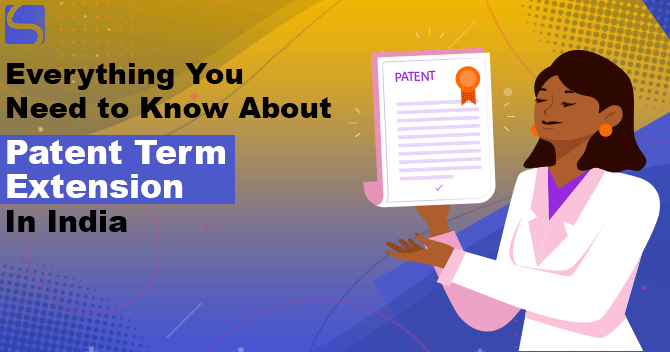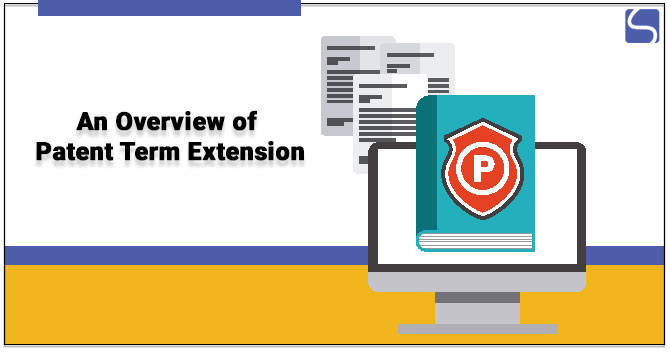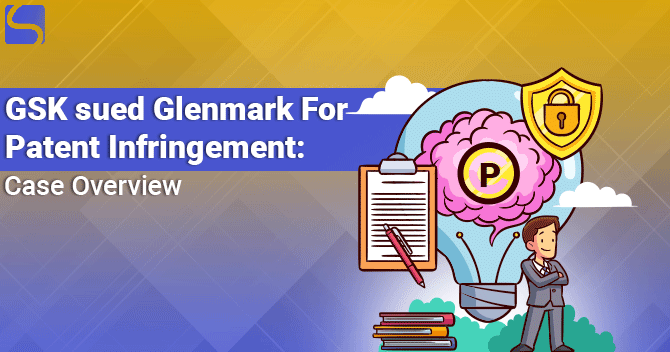Everything You Need to Know About Patent Term Extension in India

Karan Singh | Updated: Dec 13, 2021 | Category: Patent
A Patent is a vital part of Intellectual Property Rights (IPR), and it gives elite rights to its inventor so that no one can copy the invention idea. The validity of a Patent Registration in India is for 20 years, and this is across businesses & industries. However, there is a need for Patent Term Extension to give the inventor more time to use their invention for the purpose of growth & development of the invention. Scroll down to check more information regarding Patent Term Extension.
Table of Contents
What is Patent Term Extension?
Patent Term Extension (PTE) is only for certain types of Patents like Pharmaceutical Products & all medical devices related Patents. Patent owners of such Patents generally benefit the most after a device or drug is commercially launched and is excluded from the competition. But, because devices & drugs must undergo a prolonged review process at the FDA (Federal Drug Administration) before commercial use/launch, related Patent is filed long before FDA consent. Patent Term Extension is designed to restore some of the Patent terms “lost” during the Federal Drug Administration review process.
The Patent Term can be prolonged for a maximum of five years, only if the extension will not cause a Patent Term to extend for more than fourteen years which is a total remaining Patent Term. These fourteen years are restrained by the date the pharmaceutical product receives regulatory consent for the expiration of the Patent. The Patent Term Extension has only been granted from the actual expiry date of Patent Registration, including Patent Term Adjustment (PTA). In the case where an incurable disclaimer is filed, the extension of the Patent Term is measured from the expiry date to the disclaimer date, not from the date the Patent expires in the nonexistence of a terminal disclaimer. Accordingly, PTA and PTE are estimated individualistically & run separately rather than alongside.
A Patent will only be capable of the extension if it includes at least one claim covering an approved pharmaceutical product and fulfils the following conditions:
- The product is subjected to a regulatory review period before its commercial marketing or use;
- The Patent is not expired & still alive;
- The Patent period has not extended formerly;
- The Patent owner or their agent submits a complete & timely application for extension;
- The approval for commercial marketing or use is first permitted, except for Patents claiming only the method of making a Product.
The situation of Patent Term Extension & Patent Term Adjustment in Indian Patent Office (IPO)
Regulators approve by extending the Patent life and delaying the prosecution & examination of Patent applications. Such delays are more significant in pharmaceutical invention cases, where the product is not marketed for many years for timely regulatory consent. The Indian Government first brought up the suggestion for Patent Term Extension in the situation of the 2nd committee appointed on the direction of the Hon’ble Delhi High Court in the Nitto Denko case – the primary purpose of considering PTE for the time being lost in Patent application processing. The committee concluded that the twenty-year Patent Term that was originally provided for 7 or 14 years was delayed, and nothing prevents the inventor or applicant from taking steps for regulatory approval/consent and commercialisation while the Patent application is pending. Currently, India has not implemented such provisions yet.
What is the Impact of Patent Term Extension?
- This extended period would entail that a previous publication that would somehow or another show the absence of novelty of an invention guaranteed in a Patent application wouldn’t be allowed as a primary aspect of the inspection or resistance-proof;
- Any extension of the Patent will adversely influence access to the less expensive medications that that conventional pharmaceutical organisations produce in India;
- Giving a longer Patent term for pharmaceutical Patents will result in suspensions in the passage of conventional forms & could adversely influence access to reasonably priced medications;
- Regional Comprehensive Economic Partnership (RCEP) looks to expand & regulate the time period permitted to Patent applications while surveying the distinctiveness of an invention guaranteed in a Patent application;
- The extended period is intended to make Patenting simpler for organisations or companies.
Reactions Recognised with Patent Term Extension
- The basic term of protection that applies to all technologies or inventions no matter what the pace of mechanical improvement created from an arrangement of TRIPS Agreement[1];
- Having a technology-agnostic Patent term makes a useless burden reduction where shorter insurance is needed for invention. In this way, considering the improving quality of invention, it is enterprises or organisations, to promote information & inventions in the market;
- In a few divisions like scientific devices & information technology, where the invention is constantly changing. But, conceding twenty years of Patent protection doesn’t validate;
- In a business where costs progressively decline within the initial years of the appearance of the new invention. Such a broad time of safety without a financial premise is strange.
Debates Recognised with Patent Term Extension (PTE)
- Many pharmaceutical companies report benefits that are usually more than the costs involved in R&D (Research & Development);
- Developed countries, for their pharmaceutical companies, look for a term expansion opposing that it is vital to recovering the costs of Research & Development;
- Any further Patent Term Extension will have an effect on corporate welfare at the expense of social welfare;
- Moreover, the advocates argue the PTE could recompense for the loss of Patent term duration lost in getting managerial sanctions or inferable from deferrals at the Patent Office;
- Given India’s quality as a foremost provider of moderate conventional drugs, giving longer Patent Terms will outcome in deferrals. Particularly in the passage of non-exclusive forms & could critically influence access to prescription.
Conclusion
The provision of Patent Term Extension (PTE) in nations where they are applicable is beneficial to Patent owners for an extended Patent term, which boosts monopoly and doesn’t allow 3rd party to access it. But, such an extension could avoid the entry of a general player into these markets, which could be vital for public health in Pharmaceutical Patents and Biotechnology Patents. Therefore, Nations applying PTE provisions should be particularly cautious in Pharmaceutical Patents and Biotechnology Patents to avoid Patent Office delays that limit Patent life spans to 20 years despite permitting and maintaining Patent applications.
Read our Article:What do you mean by Double Patenting? – An Overview














